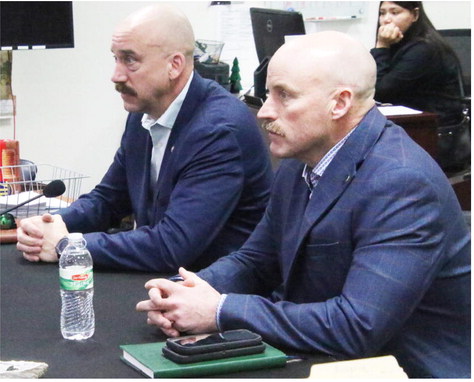Legislators Object To Rule Proposal On Ballots
Legislators took a bipartisan 5-4 vote to object to a Secretary of State rule proposal intended to give the office flexibility in amending ballot designs. But lawmakers and county officials worried that could leave them without notices of changes to the ballots.
The vote places a temporary hold on the rules process, meaning the office of the Secretary of State cannot move forward with the current proposal until after the State Administration and Veterans’ Affairs Interim Committee’s next meeting in January.
Jennifer Hensley with Missoula County said the potential rule was described by the Secretary of State’s Office in an email to election administrators to be a minor change. But if the rule would be skirting the law by cutting out notice to counties, it wasn’t going to fly.
“The change isn’t really minimal at the end of the day, and that concerns us,” she said.
Officials from the Secretary of State’s Office said the proposal would have given the office flexibility to make minor changes to voting guides and ballots as needed without needing to go through the often cumbersome and months-long rulemaking process.
However, lawmakers were concerned that without the rulemaking process, there was no official requirement the office notify counties of the changes, and exceptions would be made outside the law.
Montana Elections Manager Stuart Fuller told the committee changes are typically minor and could be updating the voting guide to reflect current law or be more clear, and make sure ballots are uniform across the state.
Sen. Wendy McKamey, R-Great Falls, asked if an exception would be needed in the Montana Administrative Register — the official state publication of government rules and actions — to accommodate the office’s request for a rule change, to which Fuller said he was unclear. He told lawmakers that he would get back to them.
“I would really prefer us to have the opportunity to go back and have a good answer for your question of how this should be done,” he said. “But also then give assurance that we’re just not willy- nilly, you know, oh, well, all the ballots now have to be pink.”
McKamey said her concern wasn’t with the ballots, but with compliance with the law.
Some fellow lawmakers asked McKamey if she’d support just allowing the office to tweak the procedure based on the feedback, but the Republican from Great Falls said she wanted more oversight than that. She, along with Chairperson Rep. Julie Dooling, R-Kalispell, joined Democrats in voting for the informal objection.
That was one of three options the committee had to address the concerns. The committee could have also asked the Secretary of State’s Office to delay the process voluntarily, or do nothing and allow the rulemaking process to proceed.
Sen. Forrest Mandeville, R-Columbus, was in favor of asking the office to delay the process voluntarily.
“Ask for a pinky promise, which I believe is binding if it’s on the record,” Mandeville said. Chief Deputy Secretary of State Angela Nunn said one of her concerns over delaying the rulemaking process was the timeline before primary ballots needed to go out. She said the office was hoping to have guidance out to counties by February to have time before the June primary election.
Nunn said the office is in constant communication with counties regarding changes, making the rulemaking process an unnecessary hurdle.
Hensley said during public comment the rules publication flew by election administrators because of election season, and said the comments on the rule change would have been due the day after the election certification deadline.
“This is just one example of where even a very properly published rule takes many eyes to review because we are busy professionals,” she said.
She critiqued the characterization of the rule change by the office as minimal, saying since it would bypass rule changing process, it wouldn’t be minimal.
“We enjoy robust and positive collaboration with the Secretary of State. They have been a wonderful office to work with, but we’re not naive in thinking that we will have the same openness and expertise in future administrations,” she said.
The office of the Secretary of State has the option to go back to the drawing board with a new rule, taking into consideration the comments from the committee, or accept the rule was nixed, essentially leaving the status quo in place.
The committee meets again Jan. 25, 2024.

